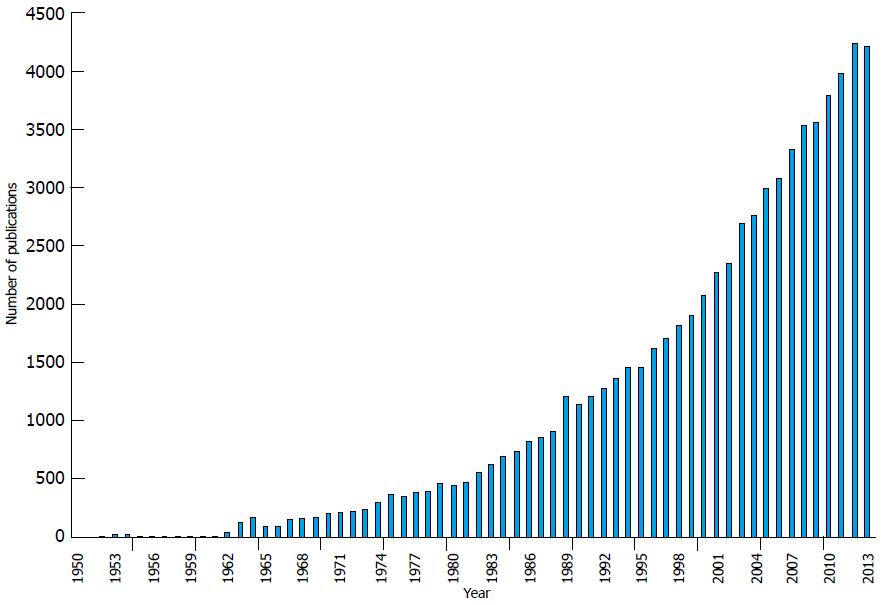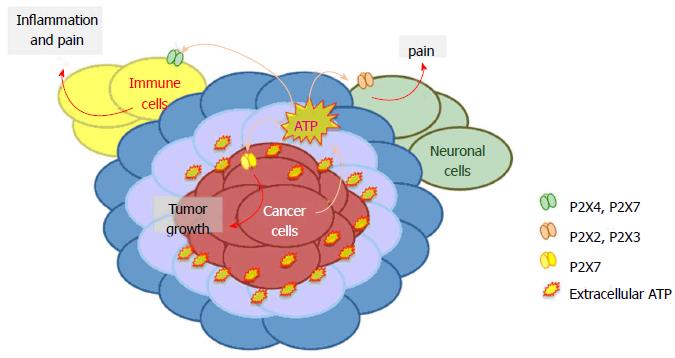Copyright
©2014 Baishideng Publishing Group Inc.
World J Biol Chem. Nov 26, 2014; 5(4): 429-436
Published online Nov 26, 2014. doi: 10.4331/wjbc.v5.i4.429
Published online Nov 26, 2014. doi: 10.4331/wjbc.v5.i4.429
Figure 1 Number of publications per year with keywords “cancer pain”.
From MEDLINE®/PubMed®, a database of the United States National Library of Medicine.
Figure 2 Schematic representation of solid tumor generated by cancer cells (red) surrounded by the normal tissue cells (light and dark blue) releasing extracellular adenosine triphosphate in surrounding environment (in yellow).
Adenosine triphosphate (ATP) acts through three different ways: (1) binding P2X7 receptors, ATP facilitates tumor growth; (2) binding the P2X2, P2X3, P2X2/3 receptors expressed by neuronal cells (in green), ATP triggers pain perception; and (3) binding P2X4 and P2X7 receptors expressed by immune cells (in yellow), ATP causes inflammation and pain.
- Citation: Franceschini A, Adinolfi E. P2X receptors: New players in cancer pain. World J Biol Chem 2014; 5(4): 429-436
- URL: https://www.wjgnet.com/1949-8454/full/v5/i4/429.htm
- DOI: https://dx.doi.org/10.4331/wjbc.v5.i4.429










